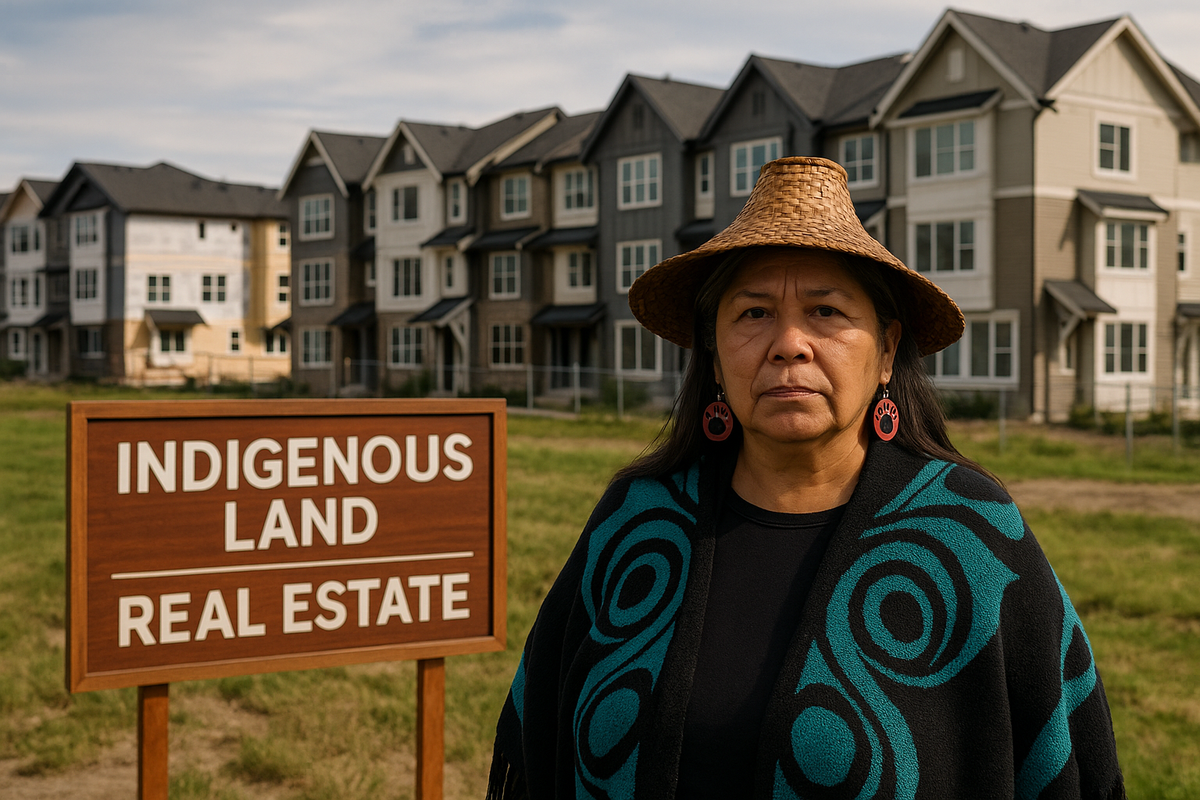
✍️ By Debbie Balfour | WBN News | October 28, 2025 | Click HERE for your FREE Subscription to WBN News and/or to be a Contributor.
Picture this: a landmark court decision in the Cowichan Tribes case that may shift the bedrock of property rights across British Columbia, and with it, send a jolt through regions such as Langley, where land-use pressure is high and rezoning is frequent. For real-estate professionals and investors, this is more than legal theatre, it’s a potential new risk factor in redevelopment, land assembly and neighbourhood change.
What happened and why it matters
On 7 August 2025, the British Columbia Supreme Court (BCSC) ruled in favour of the Cowichan Tribes in the case Cowichan Tribes v. Canada (Attorney General), recognising Aboriginal title over a large parcel of land (originally claimed at about 1,846 acres) on the south arm of the Fraser River in the City of Richmond.
Critically, the ruling held that Aboriginal title is prior and senior to fee simple title (the standard private ownership model) and that the fee simple grants issued by the Crown may be unjustified infringements of Indigenous title.
The province quickly signalled concern. Niki Sharma, Attorney General of British Columbia, warned the decision “could have significant unintended consequences for fee simple private property rights in B.C.”
In plain speak: a precedent-setting case is now on the table, and when property law shifts, so does real estate strategy.
Implications for Langley land and investors
While the Cowichan decision directly applies to Richmond, its implications radiate outward, especially into areas like Langley, where land assembly and rezoning are ever on the agenda.
- For landowners in Langley zoned for future development, this adds a new layer of risk: Could emerging or contested property-rights frameworks affect rezoning outcomes or delay approvals?
- For developers and investors assembling parcels or buying early-stage projects (e.g., rezoning from suburban to townhome or higher density), title risk, title clarity have just become more complex.
- For homeowners in stable zones, the immediate risk remains low, but the shift in the baseline legal environment means long-term value and neighbourhood character may be subject to changing rules.
Strategy takeaways for market participants
- Due diligence ramp-up – Confirm title chain, historical Crown grants, and ask whether any portion of the land could be subject to Indigenous-title claims or Crown negotiation risk.
- Risk modelling reset – In your pro forma, include a scenario for regulatory review delays or compensation/negotiation overlays tied to Indigenous rights.
- Timing review – Where rezoning is imminent, consider whether waiting for legal/regulatory clarity might reduce risk, or whether moving faster before precedent cascades could give advantage.
- Stay informed – Monitor appeal outcomes of the Cowichan case, and track how the province responds (legislative changes or policy shifts may follow).
- Neighbourhood-character watch – For existing homeowners, recognise that “what happens nearby” (rezoning, land assembly, higher density) interacts with this rights environment, and value may shift accordingly.
The Cowichan decision may feel distant for many in Langley today—but when property-rights law moves the baseline, the ripples roll far. If you’re involved in land, zoning or real-estate strategy in the Lower Mainland, this is one to watch. Be proactive, update your scenario planning, reassess title exposures and tune your timing. The land-use seas are shifting.
Debbie Balfour | Real Estate Investing Success Coach + Podcast Host
📍 Website: www.DebbieBalfour.com
📧 Email: Debbie@DebbieBalfour.com
🔗 LinkedIn: Debbie Balfour
▶️ YouTube Channel: youtube.com/@DebbieBalfour
Join the FREE Facebook Group: Real Estate Investor Success Hub
TAGS: #Real Estate Rights #Zoning Risk #Indigenous Title #Land Use Langley #BC Property Law #Real Estate Investing #WBN News Langley #Debbie Balfour
Sources:
- MLT Aikins: What Is the Cowichan Decision and Why Is Everyone So Worked Up?
- The Hub: Five Take-Aways on the Historic B.C. Court Ruling on Indigenous Land Ownership
- B.C. Attorney General Statement on Cowichan Tribes Decision
- Better Dwelling: Will Canadians Lose Their Homes? B.C. Rules First Nations Own 6% of Richmond
- Cassels: Aboriginal Title Supersedes Fee Simple — Landmark Ruling Creates Significant Uncertainty
- Aristotle Foundation: B.C. Supreme Court Takes an Axe to Private Property Rights


